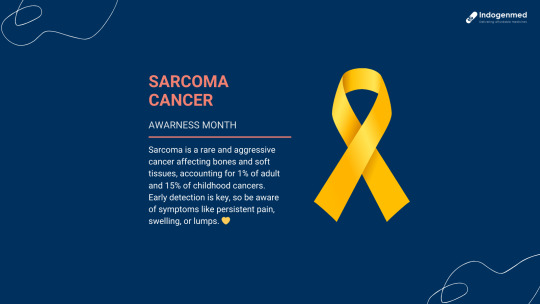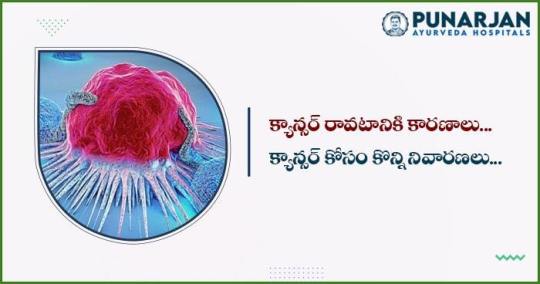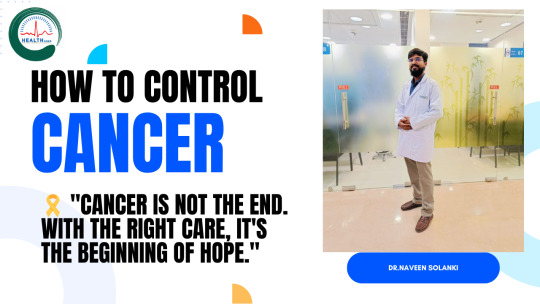#CancerPrevention
Explore tagged Tumblr posts
Text
Warning: Low-Carb Diet Colorectal Cancer Risk Linked to Gut Bacteria

When we talk about low-carb diet colorectal cancer risk, it’s not just about chowing down on bacon and eggs or skipping out on pasta. It’s about how a diet lower in carbohydrates, especially if it also skimps on fiber, can reshape your gut microbiome in ways that might tip the scales toward colorectal cancer. Let’s break it down:
Why low-carb diets exploded: From Atkins in the ’70s to keto’s resurgence in the 2010s, the promise of rapid weight loss pulled millions into low-carb lifestyles.
The microbiome revolution: Scientists finally started to decode the trillions of bacteria living in our guts and realized these microbes aren���t just hitchhikers; they actively shape our health.
A chilling new study: Researchers have now linked a strict low-carb, low-fiber eating pattern to higher colorectal cancer markers in mice colonized with colibactin-producing E. coli. In plain terms, certain bacteria go rogue.
By the end of this article, you’ll know exactly why that’s a problem, how to spot risk factors in your diet, and—most importantly—what you can do to protect your gut. Let’s start with the basics of low-carb eating.
Ready to uncover the truth behind your low‑carb diet colorectal cancer risk? 👉 Click now to read the jaw-dropping study and learn how to protect your gut health today!
#LowCarbDiet#ColorectalCancer#GutHealth#CancerPrevention#LowCarbRisks#HealthyEating#NutritionScience#DietAndHealth#Microbiome#HealthNews
5 notes
·
View notes
Text
Discover the power of a cancer-fighting diet. Learn how simple foods can boost health and support recovery. Start your journey today!
#CancerFighting#HealthyEating#Nutrition#PlantBased#Superfoods#Antioxidants#WholeFoods#CancerPrevention#Wellness#EatTheRainbow#weightlossjourney#cleaneating#guthealth#wellnessjourney#youtube#healthyliving#healthylifestyle
5 notes
·
View notes
Text

🌟 October is Liver Cancer Awareness Month! 🌟
Did You Know? Recognizing the symptoms of liver cancer is crucial: unexplained weight loss, fatigue, jaundice, and abdominal pain can all be warning signs. Don’t ignore these signs! Schedule your consultation today with Dr. Pratik Patil, an expert in liver cancer treatment.👉For More Details☎Call: 09637439163🌎Web: https://www.pratikpatil.co.in/
#livercancerawareness#cancerprevention#earlydetection#liverhealth#drpratikpatil#pune#pcmc#wakad#oncology#fightcancer#livercare#livercancerspecialist#hematologist#cancertreatment#stayhealthy#medicaloncologist#cancerdoctor#cancercare#oncologyexpert#cancerspecialistinpune#cancertreatmentspecialist#balewadi#expertcare#consultanexpert#baner
2 notes
·
View notes
Text

Sarcoma, often called the "forgotten cancer," affects the body's connective tissues like bones and soft tissues. Despite being rare, it's important to spread awareness and support those affected. Soft tissue sarcomas, the most common type, can appear in muscles, fat, blood vessels, and more. Early detection is crucial, so watch for painless lumps that may grow and become painful. Together, let's bring attention to this often overlooked cancer and support those on their journey.
2 notes
·
View notes
Text
Beginners Guide To Prostate Cancer
Understanding prostate cancer is essential for early detection and effective treatment. This comprehensive guide aims to inform readers about the basic aspects of prostate cancer in a clear, clinical manner.
#ProstateCancerAwareness#MenHealth#CancerPrevention#EarlyDetection#ProstateHealth#MedicalGuide#CancerAwareness#HealthEducation#CancerPreventionTips#ProstateScreening
2 notes
·
View notes
Text
Cancer: క్యాన్సర్ రావటానికి కారణాలు.. క్యాన్సర్ కోసం కొన్ని నివారణలు

ఒక మనిషికి క్యాన్సర్ సోకటానికి ప్రధాన కారణమేంటి! ఈ ప్రశ్న చూడటానికి సర్వ సాధారణంగా కనపడుతున్నా ఇంతే సాధారణంగా దీనికి సమాధానం చెప్పలేము, క్యాన్సర్ రావటానికి ఖచ్చితంగా ఎదో ఒక్కటే కారణం చెప్పలేం, క్యాన్సర్ వచ్చిన వాళ్ళలో కొందరు వ్యాయామం చేస్తూ , సరైన ఆహారాన్నే తింటూ ఎలాంటి దురలవాట్లు లేకుండా సరైన జీవనశైలిని అనుసరిస్తున్న వారు కూడా ఉన్నారు. అలవాట్ల వల్ల క్యాన్సర్ వచ్చినట్లయితే వీరందరికీ ఎందుకు వచ్చినట్లు? ఇలా క్యాన్సర్ చుట్టూ ఎన్నో ప్రశ్నలు.. వాటి సమాధానాలను ఈరోజు మనం తెలుసుకుందాం.
Click on the link to learn more: https://www.punarjanayurveda.com/cancer-causes-and-prevention/
2 notes
·
View notes
Text
What Causes Kidney Cancer? Understanding Risk Factors
Kidney cancer, also known as renal cancer, occurs when abnormal cells in the kidney grow uncontrollably, forming a tumor. It is one of the top 10 most common cancers in both men and women. While the exact cause of kidney cancer often remains unknown, researchers have identified several key risk factors that can increase a person’s likelihood of developing this disease.
In this blog, we’ll explore the known and suspected causes of kidney cancer and the factors that may put you at higher risk.
1. Smoking
One of the most well-established risk factors for kidney cancer is smoking. Smokers are about twice as likely to develop kidney cancer compared to non-smokers. Harmful chemicals in cigarettes can enter the bloodstream, get filtered through the kidneys, and cause damage that may lead to cancerous changes over time.
2. Obesity
Being overweight or obese increases the risk of several cancers, including kidney cancer. Excess body fat may alter hormone levels such as insulin and estrogen, which can promote the growth of cancer cells. Studies have shown a strong link between high BMI (body mass index) and the incidence of renal cell carcinoma, the most common type of kidney cancer.
3. High Blood Pressure (Hypertension)
People with high blood pressure — even if it’s controlled with medication — have an increased risk of kidney cancer. While the exact mechanism is unclear, chronic high blood pressure may damage the blood vessels in the kidneys over time, creating conditions that favor cancer development.
4. Family History and Genetics
If you have a close relative (parent, sibling, or child) who has had kidney cancer, your own risk is elevated. Inherited conditions such as von Hippel-Lindau (VHL) disease, Birt-Hogg-Dubé syndrome, and hereditary papillary renal carcinoma are rare but strongly associated with kidney cancer.
5. Exposure to Harmful Substances
Prolonged exposure to certain industrial chemicals like asbestos, cadmium, and some herbicides may increase the risk of kidney cancer. Occupations involving heavy metals or petroleum products may carry higher risks as well.
6. Long-Term Dialysis
Patients with end-stage renal disease on long-term dialysis have a higher risk of developing acquired cystic kidney disease, which can lead to kidney cancer. While this is less common, it’s a known concern for those undergoing years of dialysis treatment.
7. Gender and Age
Men are almost twice as likely to develop kidney cancer as women. The risk also increases with age, typically peaking after the age of 50.
8. Certain Medications
Some studies suggest a possible link between long-term use of certain pain medications (especially phenacetin, now banned in many countries) and increased kidney cancer risk. Always consult your doctor before starting or continuing any medication.
Reducing Your Risk
While not all risk factors can be controlled — such as age or family history — many lifestyle-related risks can be managed. Here’s how to lower your chances of developing kidney cancer:
Quit smoking
Maintain a healthy weight
Manage your blood pressure
Stay physically active
Limit exposure to harmful chemicals
Eat a balanced diet with plenty of fruits and vegetables
Conclusion
Understanding what causes kidney cancer is a critical step in prevention and early detection. If you fall into one or more high-risk categories, talk to your doctor about screening options and ways to lower your risk. Remember, early diagnosis greatly improves treatment outcomes.
If you're looking for expert guidance, Dr. Rahul Jena is one of the best urologists in Bhubaneswar, specializing in kidney-related conditions and urologic cancers. His experience and patient-centered approach make him a trusted name in urology care across Odisha.
For personalized advice or to schedule a kidney health screening, reach out to Dr. Rahul Jena or visit a reputable urology clinic near you.
#KidneyCancer#KidneyCancerAwareness#CancerAwareness#CancerPrevention#HealthAwareness#UrologyHealth#EarlyDetectionSavesLives#StayHealthy#beatcancer
0 notes
Text

5 Silent Cancer Warning Signs Most People Ignore
Cancer often whispers before it screams — but are you listening? Many early symptoms are dismissed as minor ailments, delaying life-saving diagnoses. Here are five silent warning signs you should never ignore, along with actionable advice for early detection.
1. Unexplained Weight Loss (Without Diet or Exercise)
Why It’s Suspicious: Losing 5% of body weight (or 5+ kg) unintentionally within 6–12 months can signal cancers like pancreatic, stomach, lung, or esophageal. Tumors may alter metabolism or suppress appetite.
What to Do:
Track weight trends using a journal or app.
Rule out thyroid/diabetes issues first, but insist on cancer screening if no cause is found.
Indian Context: “Khoon kam ho gaya?” Don’t celebrate sudden weight loss — investigate!
2. Persistent Cough or Hoarseness (Lasting 3+ Weeks)
Why It’s Suspicious: A nagging cough (especially with blood) or voice changes may indicate lung, throat, or thyroid cancer. Smokers and tobacco users are at higher risk.
Red Flags:
Cough worsens at night.
Voice stays raspy despite home remedies (kadha, honey).
Action Plan:
Demand a chest X-ray or endoscopy if symptoms persist.
Tobacco users: Quit NOW and schedule a screening.
3. Unusual Fatigue That Won’t Quit
Why It’s Suspicious: Constant exhaustion (even after rest) can stem from blood cancers (leukemia, lymphoma) or tumors causing internal bleeding (colon/stomach).
Key Difference:
Normal tiredness improves with sleep.
Cancer fatigue feels crushing and relentless.
Indian Hack: If chai-naps don’t help, get a CBC (Complete Blood Count) test.
4. Persistent Pain (Without Injury)
Why It’s Suspicious: Ongoing headaches (brain tumors), back pain (ovarian/pancreatic cancer), or bone aches (metastasis) need evaluation.
When to Worry:
Pain lasts weeks, isn’t linked to strain, and resists painkillers.
Night pain that disrupts sleep is a major red flag.
Tests to Request:
MRI/CT scans for localized pain.
Tumor markers if family history exists.
5. Changes in Bathroom Habits
Why It’s Suspicious:
Blood in stool/urine: Colon, bladder, or kidney cancer.
Diarrhea/constipation swings: Ovarian or colorectal tumors.
Difficulty swallowing: Esophageal cancer.
Indian Red Flags:
Assuming blood is “piles” without a colonoscopy.
Ignoring frequent UTIs (could be bladder cancer).
Screening Musts:
Age 40+: Annual occult blood test.
Age 50+: Colonoscopy, even if asymptomatic.
Why Early Detection Saves Lives
Stage 1 vs. Stage 4: Survival rates plummet from 90% to 20% for many cancers if delayed.
Indian Reality: 70% of cancers are diagnosed late due to stigma or lack of awareness.
What You Can Do TODAY
Listen to Your Body: Note symptoms lasting 3+ weeks.
Push for Tests: Doctors may dismiss concerns — insist on screenings.
Preventive Steps:
Vaccinate (HPV, Hepatitis B).
Quit tobacco/alcohol.
Eat fiber-rich, processed-food-free diets.
#CancerWarningSigns#SilentCancerSymptoms#EarlyDetectionSavesLives#DontIgnoreTheseSigns#CancerAwareness#HealthWarning#ListenToYourBody#CancerPrevention#KnowTheSigns#FightCancerEarly
0 notes
Text
Cancer Screening Test: Empowering Lives Through Early Detection

Health is a priceless asset, and in today’s fast-paced world, taking preventive action has become more important than ever. One of the most crucial steps in proactive health management is getting a cancer screening test. These tests are life-saving tools that can detect cancer before symptoms begin, giving individuals a better chance at recovery and survival.
With rising cancer cases across age groups and lifestyles, Swasthya Pro is committed to making healthcare more accessible. As a platform built on quality, trust, and convenience, we offer a wide range of cancer screening tests through NABL Certified Labs, in partnership with India’s top diagnostic institutions.
What is a Cancer Screening Test?
A cancer screening test checks for signs of cancer in people who do not yet show any symptoms. It helps catch the disease early, often before it has spread or become dangerous. The earlier cancer is caught, the easier it is to treat—and the better the chances of survival.
Screenings are available for many types of cancers, such as breast, cervical, prostate, colorectal, and lung cancer. Each test follows a protocol based on age, gender, and risk level.
Why It Matters
Most cancers develop silently over time. When symptoms do appear, they’re often signs that the disease has already progressed. Regular cancer screening tests can identify warning signs at the earliest, even at a cellular level.
This early detection allows treatment to begin sooner, which is often less aggressive, more effective, and less expensive. A simple test today can mean the difference between manageable recovery and a lengthy, difficult treatment journey.
Common Types of Cancer Screening Tests
Different types of cancers require different types of screenings. Some common and effective cancer screening tests include:
Mammography for breast cancer
Pap smear and HPV test for cervical cancer
Colonoscopy and stool tests for colorectal cancer
PSA blood test for prostate cancer
Low-dose CT scan for lung cancer
At Swasthya Pro, we help you choose the right tests based on your age, lifestyle, and risk profile.
Who Should Get Screened?
While everyone benefits from regular health checks, certain individuals are at a higher risk and should prioritize cancer screening tests. These include:
Individuals aged 30 and above
Those with a family history of cancer
Tobacco or alcohol users
People exposed to carcinogens (e.g., in work environments)
Those with chronic infections such as HPV or Hepatitis B
Even if you feel healthy, early screenings ensure you're truly in the clear.
How Swasthya Pro Makes a Difference
Booking a cancer screening test through Swasthya Pro is more than just a medical appointment—it's peace of mind. We partner only with NABL Certified Labs and offer:
Accurate, reliable results
Doorstep sample collection
Transparent pricing and support
Digital report delivery
Trusted laboratory networks
We believe preventive care should be accessible, affordable, and seamless.
How Often Should You Get Screened?
Frequency of cancer screening tests depends on individual factors. However, general guidelines recommend:
Women aged 40+ should get a mammogram every 1–2 years
Women aged 21–65 should undergo a Pap test every 3 years
Adults 50+ should undergo colorectal screening every 10 years
High-risk individuals (e.g., smokers, family history) may require annual screenings
With Swasthya Pro, you get access to plans and expert suggestions tailored to your needs.
Overcoming the Fear of Testing
One reason people delay a cancer screening test is fear—fear of a positive result, fear of pain, or fear of what they might discover. But avoiding a test doesn’t change reality. If anything, it delays treatment and worsens outcomes.
When you choose screening, you're choosing clarity and control. You're saying yes to life, to time with family, and to a healthier future.
Secure, Simple, and Supported
At Swasthya Pro, you’re never alone. Whether it’s choosing the right cancer screening test, understanding your report, or getting follow-up advice, we’re with you every step of the way.
We offer personalized services that match your age and risk factors, ensuring that the cancer screening test you take is both relevant and necessary.
Take Action Before It’s Too Late
Don't wait for a symptom to appear. Schedule your cancer screening test now with Swasthya Pro. Our experts, labs, and support team make it easy and stress-free. Early detection can save your life—or someone you love.
Start today. Empower yourself with the knowledge that comes from regular cancer screening tests. You’ll never regret choosing prevention.
0 notes
Text

#CancerAwareness#FightCancer#CancerSupport#CancerCare#CancerPrevention#CancerResearch#CancerTreatment
0 notes
Text
Diet and Cancer Risk: What You Need to Know
Can your diet really affect your risk of developing cancer? The answer may surprise you. Research shows that the foods you eat daily can greatly impact your cancer risk. So, what dietary factors can affect cancer risk, and how can you make simple changes to lower your risk?
Key Takeaways Eating a diet rich in plant-based foods like vegetables, fruits, whole grains, and beans can help lower cancer risk. Antioxidants and beneficial compounds in these plant-based foods can protect cells from damage and inflammation, which are linked to cancer. Limiting processed and red meats, sugary foods, and alcohol can also play a role in cancer prevention. Making gradual, sustainable changes to your diet by focusing on more nutrient-dense, plant-based options is an important step in cancer risk reduction. Maintaining a healthy weight through a balanced, plant-based diet and regular physical activity can further contribute to lower cancer risk.
#cancer#cancerrisk#breastcancer#cancerprevention#cancerresearch#cancerdiagnosis#cancerrisks#prostatecancer
0 notes
Text

🛑 World No Tobacco Day 🛑 🌍 May 31st | A Global Call to Quit
Tobacco kills over 8 million people every year, and countless more suffer from chronic illnesses caused by smoking and nicotine exposure. On this World No Tobacco Day, Global Stem Cell Care stands united with the world in raising awareness about the devastating health impacts of tobacco.
🚭 Say No to Tobacco. Say Yes to Life. Tobacco use is a leading cause of cancer, heart disease, and lung disorders.
✅ Quit today to breathe easier, live longer, and protect your future. ✅ Support your loved ones in their journey to quit. ✅ Choose a healthier path with preventive care and regenerative medicine.
🔬 Regenerative health begins with a single step—saying no to tobacco.
#WorldNoTobaccoDay#GlobalStemCellCare#TobaccoFreeLife#QuitSmoking#StemCells#CellRegeneration#Exosomes#GSCC#HealthyLiving#StemCellAwareness#LungHealth#CancerPrevention#RegenerativeMedicine#BreatheEasy#LifeWithoutTobacco#NoTobaccoDay2025
0 notes
Text
Early-Onset Cancer Rising in the U.S., Especially Among Women
While cancer before age 50 has traditionally been rare, recent data reveal a concerning increase in early-onset cancer cases across the United States. A new comprehensive study by the National Cancer Institute (NCI), published in Cancer Discovery, highlights sharp increases in breast, colorectal, kidney, and uterine cancers among younger adults...
#cancer#cancerawareness#cancerfighter#cancersurvivor#cancercommunity#endcancer#cancertreatment#breastcancer#lungcancer#cancervictory#cancerresearch#cancerprevention#beatcancer#cancerjourney#stagefourcancer#cancersupport#cancercare#cancerhope#cancersurvivorship
0 notes
Text

Consult a urologist if you experience frequent urination, pain while urinating, blood in urine, erectile dysfunction, infertility issues, or testicular pain. Men over 50 should also get regular prostate checkups. Early consultation can prevent serious health problems and ensure better outcomes.
Book your appointment today at Stone and Urology Cancer Clinic in Navi Mumbai.
#MensHealth#UrologyCare#ProstateCheck#ErectileDysfunction#MaleFertility#DrUrologist#drgauravkasat#Urologist#prostatecancer#prostatetreatment#ProstateHealth#prostratecancerspecialist#CancerAwareness#CancerPrevention#HealthFirst#prostatecancersymptoms#urologist#urology#Oncologist#StayHealthy#NaviMumbai#mumbai#navi mumbai#best urologist in navi mumbai#urologistinnavimumbai#structure urethra treatment in navi mumbai
0 notes
Text

“HPV Vaccination - Cervical cancer is a preventable disease.” HPV is Human Papilloma Virus which causes cervical cancer and is transmitted through sexual contact. So the vaccination of girls should ideally be done before the start of sexual activity. Vaccine Variants
Human Papillomavirus 9-valent Vaccine
Human Papillomavirus Quadrivalent Vaccine
Cervavac, developed in India, recently launched.
For more details on HPV Vaccination, Connect with us on 8800499750. To schedule an appointment with our Gynaecologist Dr. Rekha Thakur call or message on 8800499750. We can arrange for HPV vaccination at home in special cases. For Appointments 📞 8800499750 Visit us 📍Plot No. 187 Sector - 56 Gurgaon. www.wellstarclinic.com
#CervicalCancer#HPVVaccination#PreventCervicalCancer#HPV#GetVaccinated#StopHPV#CancerPrevention#HPVAwareness#Vaccines#HPVProtection#Healthy#PublicHealth#HPVShot#VaccineAwareness#Cervical#HPVPrevention#CancerFighter#ImmunityAgainstHPV#safevaccination#wellstarclinicanddiagnostics
0 notes
Text

प्रोस्टेट कैंसर के बचाव में क्या किया जा सकता हैं?
स्वस्थ वजन बनाए रखें
नियमित शारीरिक गतिविधि
संतुलित और पोषक आहार का सेवन
नियमित मेडिकल जांच और स्क्रीनिंग
पारिवारिक इतिहास की जानकारी रखें
धूम्रपान और शराब का सेवन सीमित करें
कैंसर के खिलाफ आपकी जंग में हम हैं आपके साथ। 📞 आज ही परामर्श लें और पहला कदम रखें स्वास्थ्य की ओर। Address - Mawana Road Mussoorie , Meerut Gmail - [email protected] Contact Us - 1800-313-6064 ,7599221100 website : https://www.valentiscancerhospital.in/
#ProstateCancerAwareness#स्वस्थजीवन#CancerPrevention#स्वस्थरहो#HealthTips#MensHealth#BeAware#StayHealthy#ProstateHealth
0 notes